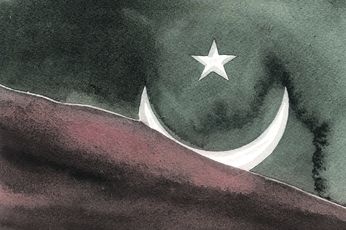The stage is set for the third successive democratic elections in Pakistan. While the country is notorious for its military dictators, with 15 prime ministers dismissed by the military or the judiciary over seven decades of turbulent independence, it is, in all fairness, noteworthy that both the last two governments have been democratically elected. Both completed their terms, despite losing their prime ministers along the way, and secured and transferred political power peacefully.
The two principal parties in the fray are the traditional rivals, the Pakistan Muslim League (Nawaz) and Imran Khan’s PTI—Pakistan Tehreek-e-Insaf (Movement for Justice). These two parties are currently locked neck-and-neck in pre-election polls at around 25 per cent each, the PML(N) having fallen precipitately in the past few months from a high of some 35 per cent.
The Zardari-Bhutto led Pakistan Peoples Party aspires to be included in the list of nationwide front runners, but has been reduced essentially to a Sindh-based regional party, with a strong local challenger in Karachi in the shape of the mohajir (immigrants from India) party, the Muttahida Qaumi Movement. Similarly, in Khyber-Pakhtunkhwa (formerly the North-West Frontier Province), the Awami National Party, once led by the great Frontier Gandhi, Badshah Khan, has been reduced to an also-ran provincial outfit.
The new element to be carefully watched are the three Islamist parties; most prominent of them is the Muttahida Majlis-e-Amal (MMA), the alliance of the traditional Islam-pasand parties such as the Jamaat-e-Islami and the Jamiat Ulema-e-Pakistan, who have been forced to acknowledge that in election after election over several decades they have shown themselves quite unable to capture the imagination or support of more than a tiny fraction of the Muslims who constitute 97 per cent of the population of Pakistan. Never having garnered more than a handful of seats, they desperately hope that by coming together under the leadership of a veteran political leader, Maulana Fazl-ur-Rahman, they might secure a somewhat more respectable score. Apart from the score or fewer seats that Rahman usually gets in the Frontier, the MMA’s expectations are likely to be dashed. Pakistanis have always wanted to be governed by political leaders, not India-bashing clerics in political clothing.
That last claim is under serious challenge by the two latest entrants into the electoral field, the religio-extremist Allah-o-Akbar Tehreek (AAT), fostered by the India-hating UN-listed terrorist, Hafiz Saeed, and the Tehreek-e-Labaik Pakistan, (TLP) led by Maulana Khadim Hussain Rizvi. While AAT seeks mainly the Sunni vote, the TLP is Shia-oriented. Given, however, that AAT is contesting only 43 seats in Punjab and seven in KP, and none in either of the other two provinces of Pakistan, whatever the number of seats it gets (and they will not be many) our ultimate nightmare, a Hafiz Saeed-dominated government in Pakistan, is most unlikely.
As for TLP, while they have put up 117 candidates in provinces around the country (and a few more are awaiting adjudication), the TLP’s most significant contribution to the election outcome will be to further fractionate the already tiny fraction of the popular vote that goes to the Islam-pasand.
The most important force in the electoral fray—the Pakistan army—is not fielding any candidates but looms over the election process as what Nawaz Sharif’s daughter has tellingly labelled the “khalai makhlook” (“the invisible forces”).
But none of that is new. The army, despite being the only truly nationwide party in Pakistan, continues to pull the strings but keeps itself backstage, while the India-baiting Islam-pasand, both old and new, continue to be marginal to the democratic process. Whether Imran wins or Nawaz’s family, nothing of significance will change either for Pakistan or India.
editor@theweek.in


